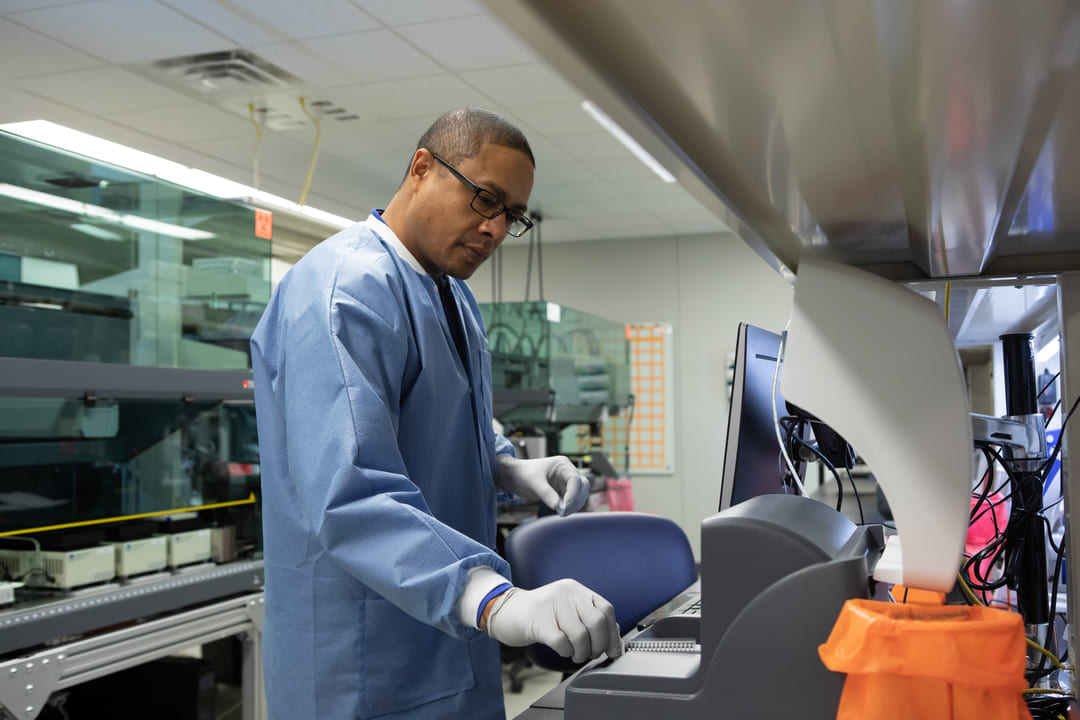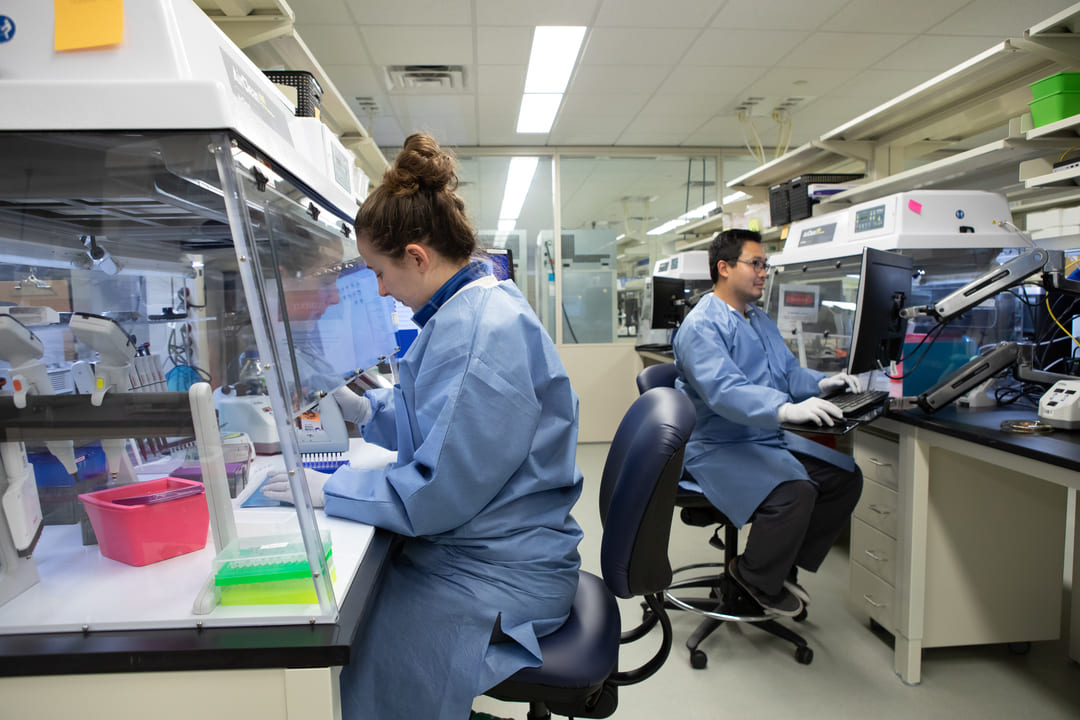Keywords:
Genetic testing is at the forefront of modern medicine, and powerful tools are now available to identify inherited DNA characteristics that are potentially detrimental to health or conversely show susceptibility to targeted therapies. One such service, the Sanford Chip, has been developed by Sanford Health as a screening tool to identify pathogenic and likely pathogenic genetic variations that can be used to estimate the risk of some cancers and cardiac conditions.
Sanford Health is one of the largest healthcare providers in the US, based in Sioux Falls, South Dakota, with 44 hospitals and 1,400 physicians delivering services to patients in many US states and nine other countries. One of the organization’s most recent initiatives is the development of a new laboratory service based on personalized medicine and genetic testing. Michael Mboob, Director of Operations at Sanford Medical Genetics and Genomics Laboratories, explained: “The Sanford Chip is a laboratory developed test combining pharmacogenetic testing – to improve the efficacy of medication and side effects – and a screening array for variants in 57 genes linked to potentially life-threatening health conditions, including breast and ovarian cancer. Launched in May 2018, this service was made possible through a generous gift by philanthropist Denny Sanford to set up the Sanford Imagenetics initiative. So far, this service has only been available to existing adult Sanford Health patients, but it has already been successful in identifying genetic changes that could affect the way a patient responds to commonly prescribed medicines, enabling physicians to offer the right drug at the right dose – the basic principle of personalized medicine.”
The Sanford Chip service is reliant on 11 Freedom EVO® and two Fluent® systems, based in the central lab facility in Sioux Falls; there are effectively six pairs of ‘mirrored’ systems to increase throughput and capacity, and ensure that each stage of the process is covered when either one of a pair of instruments is out of action for maintenance. “Once we receive blood samples from our patients, it’s a complex process to get to the laboratory results,” Michael continued. “The DNA is extracted on one system, quantified on another, normalized on the next – all samples
are diluted to 60 ng/μl – plated onto the microarray chip on the fourth instrument, and then the chip is processed on the fifth.”
 Gregory Jefferson working with the Tecan platforms in one of Sanford Health’s regulated laboratories
Gregory Jefferson working with the Tecan platforms in one of Sanford Health’s regulated laboratories
“We chose Tecan systems largely on the recommendation of other industry leaders, but also because they fitted our needs better than alternative solutions we looked at; they are user friendly and offer the automation that we need. This brings a lot of accuracy to the process, ensuring high throughput and excellent quality while minimizing errors, particularly in pipetting. It also speeds up mundane tasks, taking hours or days to do things that would take days or weeks to do manually; our team of 33 lab technicians can process over a thousand samples each week for the three-day protocol.”
[Tecan systems] bring a lot of accuracy to the process, ensuring high throughput and excellent quality while minimizing errors.
“Although the Freedom EVO and Fluent systems have separate workflows, we have deliberately designed our lab around lean principles to reduce the distance needed to move the chips and plates between the instruments. Our laboratory information management system collects all the data and ties everything together, and we use Tecan’s Introspect™ dashboard to check instrument performance and error logs – its remote log-in is particularly useful when we have so many systems to keep track of. Then, once the appropriate quality assurance and control procedures have been verified, the data is sent to our laboratory directors and pharmacists for in-depth review and interpretation before being forwarded on to genetics counselors, physicians and patients.”
“Tecan has supported us on site at each new installation to make sure that we are getting the best out of each instrument’s performance, and has also been very helpful in quickly resolving any issues we’ve had since everything has been up and running. It has taken about 18 months to set up the service and, although every one of our Tecan systems is customized, this was not a time-limiting factor; it took a considerable amount of time to get everything aligned to work efficiently, comply with clinical standards, and meet CLIA, CAP and other regulatory lab directives. This type of service had not been set up in a primary care setting before, so extensive validation was key to ensure the accuracy of results. On top of that, the data interpretation itself is very complex, and we needed to build and validate bioinformatics pipelines to ensure that genetic testing reports were clear and comprehensible, both for our team and for the physicians who would be using them to guide patient care.”
 Katherine Moodie (left) and Danny Lee (right) preparing samples for Sanford Chip testing
Katherine Moodie (left) and Danny Lee (right) preparing samples for Sanford Chip testing
“Finally, to keep things light for our hard-working technicians, we have the option to name our lab instruments, so Timon and Pumbaa from the Lion King, and Woody from Toy Story, plus other cartoon friends, are helping to provide genetic insights into personalized medicine and ultimately improving patient care,” Michael concluded.
To find out more about genomics solutions from Tecan, visit www.tecan.com/genomics
To learn more about the Sanford Chip, go to imagenetics.sanfordhealth.org/sanford-chip
Keywords:









